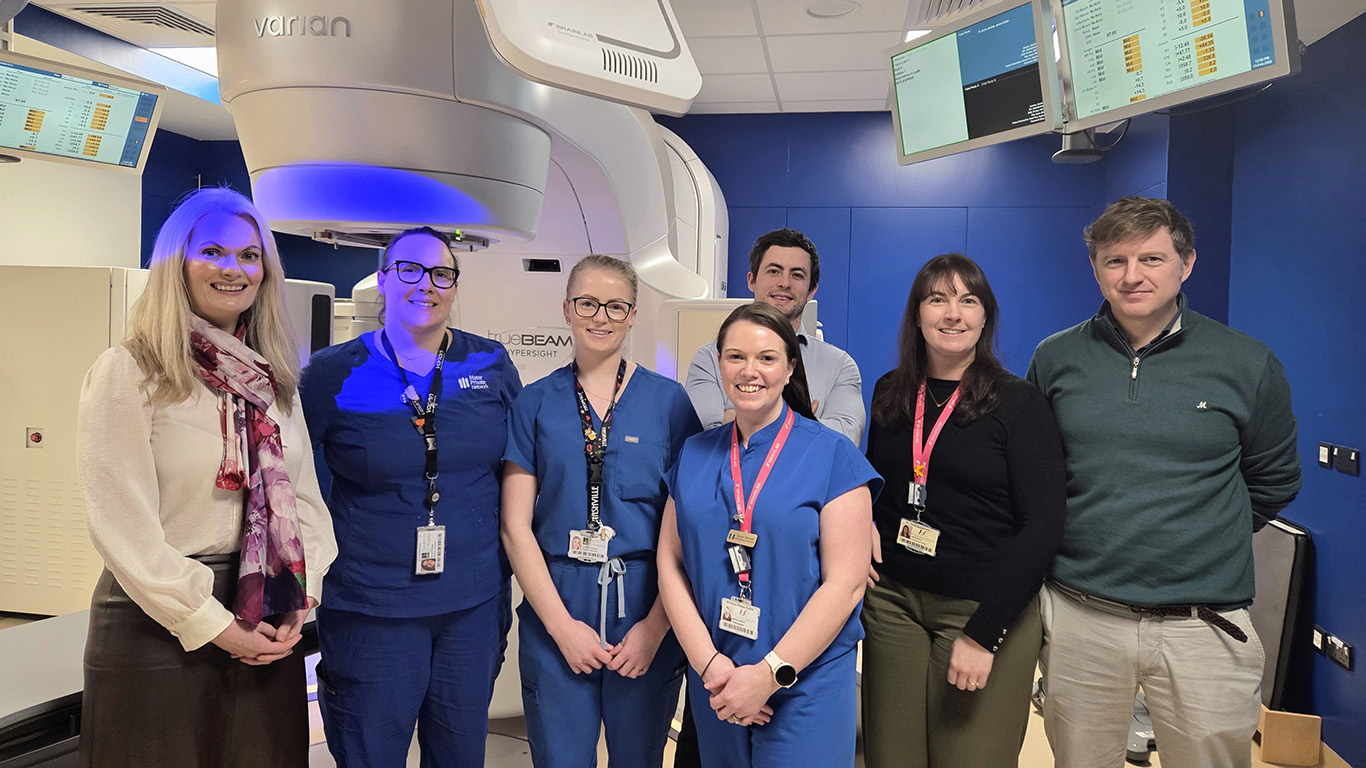11th August 2025
What Happens When You Have A Heart Attack? Expert Corner with Prof. Robert Byrne
Approximately 6,000 people experience a heart attack in Ireland each year. To act at the earliest opportunity, understanding the symptoms of a heart attack and when to seek treatment are particularly important.
Heart attacks occur when the blood supply to your heart is reduced or stopped completely, typically due to a blocked coronary artery.
Prof. Robert Byrne, Director of Cardiology at Mater Private Network Dublin, regularly treats patients who are having, or have had, a heart attack. He notes that the ‘cardinal symptom’ of a heart attack is ‘heart discomfort’. If your chest feels tight, heavy, abnormal, or painful, it is possible that you are having a heart attack.
.jpg?sfvrsn=becb6423_0)
Why is high blood pressure the silent killer?
High blood pressure is sometimes referred to as the “silent killer” as most people with hypertension do not experience any symptoms and may not be aware they have it. Despite this, high blood pressure is extremely common and is an important risk factor and driver of cardiovascular disease. This is important because cardiovascular disease remains the number one cause of death worldwide.
The good news is that by identifying high blood pressure early on and receiving treatment, you can significantly reduce your risk of heart disease and improve your long-term health.
Prof. Byrne explained on the Basically… with Stefanie Preissner podcast: “The discomfort is normally in the middle of your chest. A sign people often look for is discomfort is on the left side of their body or going down their left arm. This may be the case, but the discomfort is usually behind the breastbone. Patients often note this vague discomfort may go into their jaw and into their left arm.
“Some people can have a type of epigastric or upper abdomen discomfort, and it can be quite hard for them to know whether it is indigestion or not. A discomfort in your chest that was not there before, and which comes on quite abruptly, is something to be investigated as soon as possible, particularly if it is severe.”
.jpg?sfvrsn=9e27ced2_0)
What should I do if I am having heart/chest discomfort?
If you are having heart or chest discomfort you should seek medical help immediately. You may be able to attend an urgent cardiac care service if your symptoms are milder. When symptoms are severe, you should call for emergency medical attention.
Prof. Byrne added: “If you are in doubt, day or night, it is time to get help. Call 999 if you are sufficiently concerned. The ambulance team will have protocols. They will send someone to you. One of the fantastic developments now is that all the National Ambulance Service ambulances come equipped with 12-lead electrocardiograms (ECGs). Wherever you are in the country, however remote, the ambulance team will come and hook you up to a 12-lead ECG.”
If I am having a heart attack, what happens after the ambulance arrives?
ECGs give medical professionals an accurate record of your heart’s electrical signals. They give the ambulance team a clear indication about whether you are having a heart attack or not. The results of your ECG will determine what happens next.
Prof Byrne explained: “An ECG will tell the ambulance team whether it just looks like a heart attack or whether it is a heart attack. If it looks like a heart attack, they will take you to the nearest emergency department for a check-up. If the ECG shows that you are having a heart attack, you will need to go to a hospital that has 24/7 ability to open heart arteries, like we do at Mater Private Network.
“If you visit us, you will go straight to a catheterisation lab (cath lab) suite to have an emergency angiogram if there is a blockage. That is what we call primary PCI and that has been a revolution in cardiac care over the last 15 years.”
What if my nearest hospital does not provide primary PCI?
Primary PCIs are increasingly important for treating patients who are having a heart attack, but it is not the only treatment option available. There are drugs available to medical professionals that will help you until you can reach a hospital that has adequate cath lab access.
Prof. Byrne concluded: “Drugs which help to treat clots still have a very important role in treating heart attacks. If you are living in a remote location, there is quite a detailed calculation that takes place when a paramedic reaches you. They will calculate whether they can get you to a hospital and onto a cath lab table to have your artery opened within 90 to 120 minutes. If they can, they will bring you to wherever the nearest suitable hospital is.
“If they cannot get you to a suitable hospital in time, they will decide to give you the blood clot drug and get you to a cath lab as soon as possible. It is a more old-fashioned treatment for heart attacks, but it still has a role to play, and it buys you time."
Heart & Vascular and Urgent Cardiac Care at Mater Private Network
Mater Private Network provides comprehensive Heart & Vascular services. If you are experiencing symptoms such as shortness of breath, chest pain or discomfort chronic tiredness or palpitations, you may be referred to one of our cardiovascular team as these symptoms could indicate that you have a heart- or vascular-related condition.
For emergency heart- or vascular-related situations, our Urgent Cardiac Care service is available 24 hours a day, seven days a week in our Dublin hospital, and from 8am to 8pm, Monday to Friday in our Cork hospital.
The above content was reviewed by Daniel O'Callaghan, Interventional Cardiology Fellow at Mater Private Network in Dublin.










.jpg?sfvrsn=4dd8cf50_1)
.jpg?sfvrsn=5a81ae69_1)

